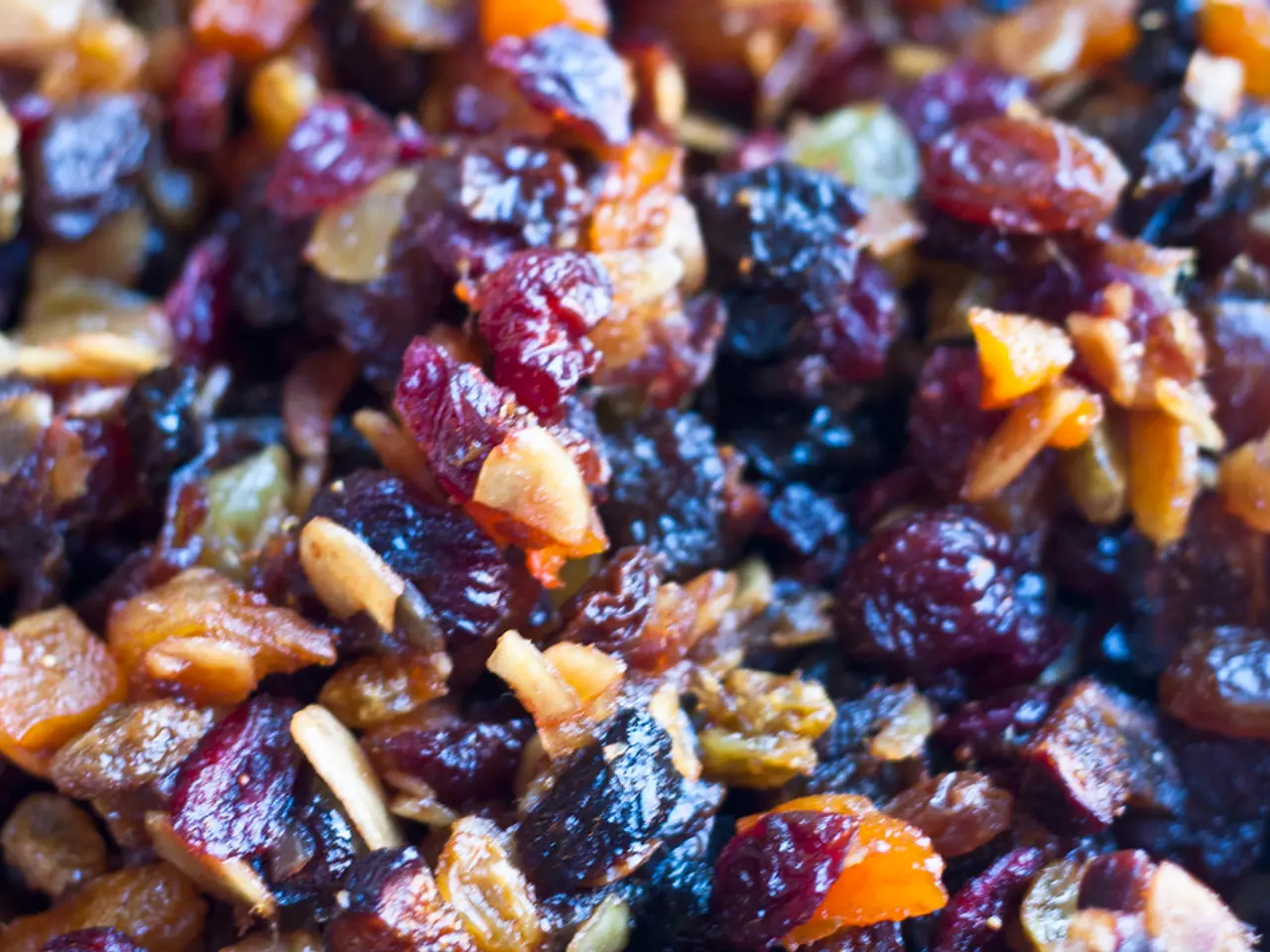Essential Vitamins to Boost Your Intake and Sources for Obtaining Them
A balanced diet is crucial for maintaining good health, and this is especially true for those following a vegetarian or vegan lifestyle. Certain vitamins and minerals can be at risk of inadequate intake, particularly among vegetarians and vegans, due to their limited presence in plant-based foods.
Among these nutrients, vitamin B12 and vitamin D pose significant concerns due to their scarcity in plant-based diets and the prevalence of deficiency risks.
Vitamin B12, vital for maintaining healthy nerve and blood cells, aiding in energy production, and DNA production, is almost exclusively found in animal products. Consequently, vegans and vegetarians are at a higher risk of deficiency, which can result in neurological symptoms, anemia, developmental issues in infants, and even associations with depression. To combat this, supplementation or consumption of B12-fortified foods (such as fortified plant milks, breakfast cereals, or nutritional yeast) is essential.
Vitamin D, crucial for healthy bones and teeth, and linked to certain cancers and heart disease, is another nutrient that is often in short supply in plant-based diets. Deficiency can lead to bone issues like osteoporosis, rickets, and osteomalacia. Fortified foods such as fortified plant milks, orange juice, and cereals, as well as safe sun exposure, are key sources for vegans and vegetarians. Vitamin D supplements (especially D2 or vegan D3) are often necessary, particularly in regions with limited sunlight or during winter months.
Other micronutrients, such as calcium, iron, zinc, selenium, vitamin A, and iodine, are also at risk for lower intake or bioavailability on vegan diets but can often be managed with careful dietary planning. Calcium can be found in fortified plant milks, tofu set with calcium, and leafy greens. Iron and zinc are present in legumes, nuts, seeds, and whole grains, but their absorption can be improved through soaking, fermenting, and sprouting. Selenium and iodine are found in nuts (e.g., Brazil nuts for selenium) and iodized salt or seaweed, respectively. Vitamin A is provided by plant sources in the form of provitamin A carotenoids in fruits and vegetables, which the body converts to active vitamin A.
In conclusion, vegetarians and vegans should focus on B12 and vitamin D supplementation or fortified foods as a priority, alongside a varied and well-planned diet to cover other micronutrients. Regular monitoring and, if needed, professional nutritional advice can help maintain adequate nutrient status in plant-based diets.
References: [1] Nutrition.gov. (2021). Vegetarian and Vegan Diets. [online] Available at: https://www.nutrition.gov/health/dietary-guidelines-americans/2020/resources/vegetarian-and-vegan-diets
[2] Academy of Nutrition and Dietetics. (2021). Position of the Academy of Nutrition and Dietetics: Vegetarian Diets. [online] Available at: https://www.ncbi.nlm.nih.gov/pmc/articles/PMC6046640/
[3] Harvard T.H. Chan School of Public Health. (2021). Vegetarian and Vegan Diets. [online] Available at: https://www.hsph.harvard.edu/nutritionsource/vegetarian-and-vegan-diets/
[4] British Dietetic Association. (2021). Vegan Diets. [online] Available at: https://www.bda.uk.com/foodfacts/vegan-diets
[5] Dietitians of Canada. (2021). Position Statement: Vegetarian, including Vegan, Diets. [online] Available at: https://www.dietitians.ca/your-health/smart-eating/nutrition-basics/position-statements/position-statements-vegetarian-incl-vegan-diets.aspx
Food choices can significantly impact health, especially for individuals following a vegetarian or vegan lifestyle. To ensure a balanced health-and-wellness, it's crucial for vegetarians and vegans to prioritize the intake of essential nutrients that may be at risk of inadequate intake, such as vitamin B12 and vitamin D, which are primarily found in animal products and may pose significant concerns in plant-based diets.




